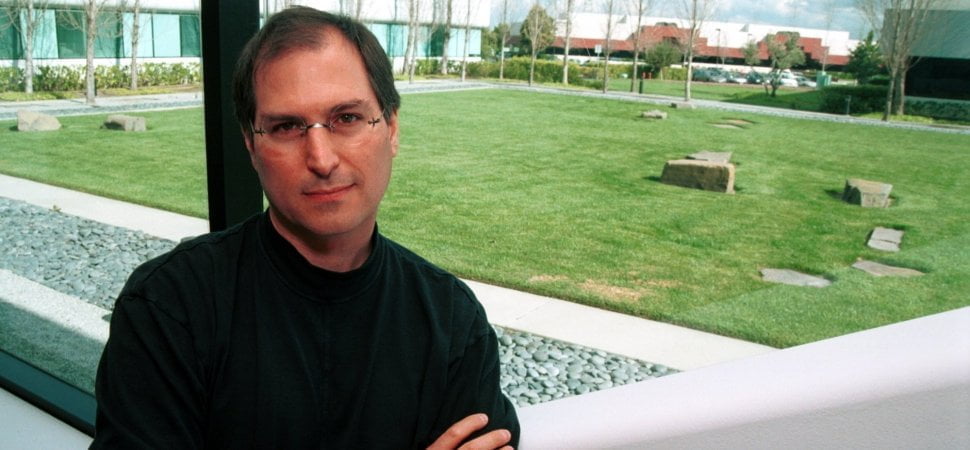
In the frantic pace of life to do more and be more, we hardly think about the importance of focus.
That’s why, for those free-spirited, creative-thinkers and entrepreneurs chasing after their dreams, this prophetic quote by Steve Jobs 21 years ago hits the nail on the head even more so today. Here’s what he said at an Apple Worldwide Developers Conference in 1997:
People think focus means saying yes to the thing you’ve got to focus on. But that’s not what it means at all. It means saying no to the hundred other good ideas that there are. You have to pick carefully. I’m actually as proud of the things we haven’t done as the things I have done. Innovation is saying no to 1,000 things.
Coincidentally, another notable thought leader has the same idea in mind. Brené Brown recently tweeted:
I’ve been following @aliedwards “One Little Word” movement for years. It’s a powerful way to set an intention for the year. This year is all about focus for me.
What’s your one little word for 2018? pic.twitter.com/bKTYMaKnhV— Brené Brown (@BreneBrown) January 22, 2018
Without focus, your very ability to think, reason, communicate, problem solve and make decisions will naturally suffer. You just can’t maximize your efficiency or go into a state of flow if your mind is wandering off into multi-task land. Speaking of…
Key to better focus: Give up multi-tasking.
The common characteristic of people who had the most time and the highest income is the ability to singletask. – Tim Ferriss, New New Internet Speaking
Imagine what we could hear, learn and share if we were 100 percent present in a conversation. The reality is, we multi-task everything. You’re probably multi-tasking right now as you read this. Is music playing in the background or in your ears? Another webpage or e-mail open? Someone else talking to you? Something is always begging for our attention.
As Tim Ferriss said, what if we were totally focused on being one-taskers? What if we truly focused on one thing, one business problem, one task, one conversation?
We’d be more focused, adaptive, and therefore better decision makers. And the better we can solve problems, the more productive we become.
The most successful people, in fact, are very patient, avoid juggling many things, and live by the motto “one step at a time.”
Additionally, research says multi-tasking it’s a myth and can be damaging to our brains. You end up splitting your focus over many tasks, losing focus, lowering the quality of your work and taking longer to hit your goals.
Jobs alluded to saying no to a thousand things. You can start by saying no to these four focus-robbers:
1. Say no to cluttering your mind.
Your first order of priority is to de-clutter your mind from “stuff” — unimportant things, tasks, calendar items, appointments, meetings, social events, and other frivolous activities that you can re-prioritize for later, delegate to others, or simply drop from your to-do list altogether. The less your mind is cluttered, the better your focus will be.
2. Say no to interruptions.
Technology is one of the greatest obstacles to gaining good focus. The constant distractions from notifications can take you off track. First, when you get in the office, avoid jumping into email; you may get sucked into a whirlpool of others’ needs, so do this last. Next, minimize interruptions by going airplane mode, or turning off notifications and placing your smartphone in another room nearby (better yet, how about using an app blocker like Freedom on all your devices?). So, what do you lose by not doing any of this? One study with a group of employees found that if all interruptions were eliminated, those employees would recapture 3-5 hours a day every day, which equals 40-60 percent of the standard work day.
3. Say no to time robbers and yes to time locking.
Time locking is the perfect way to recover stolen time from the people you work with — the time robbers — that interrupt you constantly. Avert them by simply scheduling a specified block of time on your calendar to devote strictly to an important task or activity that requires your most focus, energy and undivided attention. That means your co-workers need to know about your intent to time lock, so that they’ll cooperate in allowing for no interruptions, other than real emergencies.
4. Say no to your own unbelief.
Sometimes the whole business of having one true focus that will leave a legacy really comes down to a “mindset” of believing in yourself. For those BHAGs, you will need to stay positive about the journey ahead and look at the progress you’ve already made in hindsight. Set good boundaries and treasure your time and focus by staying positive and by sharing your BHAG with a few close colleagues so they can cheer you on and help keep you on target.

